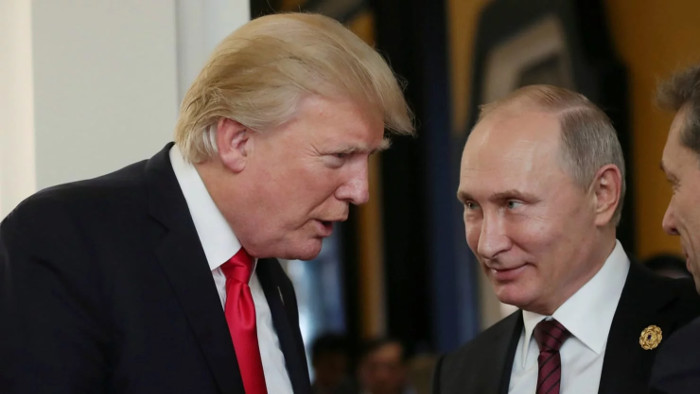The United States has formally withdrew from a landmark nuclear missile pact with Russia, on Friday, after determining that Moscow was in violation of the treaty and had no plans to come into compliance with it.
US President Donald Trump made the determination that the United States would terminate adherence to the 1987 arms control accord, known as the Intermediate-range Nuclear Forces Treaty (INF), senior administration officials told reporters.
The treaty bans either side from stationing short- and intermediate-range, land-based missiles in Europe. Washington signaled its intention six months ago to pull out of the agreement if Russia made no move to adhere to it.
“The United States will not remain party to a treaty that is deliberately violated by Russia,” Secretary of State Mike Pompeo said in a statement about the US withdrawal.
“Russia’s noncompliance under the treaty jeopardizes US supreme interests as Russia’s development and fielding of a treaty-violating missile system represents a direct threat to the United States and our allies and partners,” Pompeo said.
The senior administration officials, who spoke on condition of anonymity, said Russia had deployed “multiple battalions” of a Russian cruise missile throughout Russia in violation of the pact, including in western Russia, “with the ability to strike critical European targets.”
READ ALSO: Group intensifies moves for creation of Aba State
Russia denies the allegation, saying the missile’s range puts it outside the treaty, and has accused the United States of inventing a false pretext to exit a treaty Washington wants to leave anyway so it can develop new missiles. Russia has also rejected a US demand to destroy the new missile.
The missile, the Novator 9M729, is known as the SSC-8 by the North Atlantic Treaty Organisation.
The INF treaty, negotiated by then-President Ronald Reagan and Soviet leader Mikhail Gorbachev and ratified by the U.S. Senate, eliminated the medium-range missile arsenals of the world’s two biggest nuclear powers and reduced their ability to launch a nuclear strike at short notice.
The treaty bans land-based missiles with a range between 310 and 3,400 miles (500-5,500 km).
The dispute is aggravating the worst U.S.-Russia friction since the Cold War ended in 1991. Some experts believe the treaty’s collapse could undermine other arms control agreements and speed an erosion of the global system designed to block the spread of nuclear arms.
Trump has sought to improve U.S. relations with Russia after a chill during the tenure of his predecessor, Barack Obama. He and Russian President Vladimir Putin spoke by phone on Wednesday about Siberian wildfires and trade.
Arms control did not come up in the call, the officials said.
European officials have voiced concern that if the treaty collapses, Europe could again become an arena for nuclear-armed, intermediate-range missile buildups by the United States and Russia.


